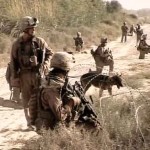
Afghanistan is gearing up for a possible political overturn. The ongoing peace talks between the US and the Taliban; talks of withdrawal of 7000 US troops; the three-month push-back of the Afghan presidential election; and the appointment of two staunch anti-Pakistan politicians – Amrullah Saleh and Asadullah Khalid – as the ministers of interior and defense respectively, are post-signs indicative of strategic changes in the US policy towards the country, as well as Afghanistan’s future path.
Dissecting the Events
With the onset of the US launched two-party talks with the Taliban without the government of Afghanistan (GoA) at the behest of the Taliban’s insistence and rumors of a possible US troops withdrawal in late summer 2018 became an accepted fact by late autumn 2018. As the peace-talks headed by US Special Representative Zalmay Khalilzad began in Qatar and continued without achieving any tangible outcome, the GoA realised it had to make a move sooner than later to gain a footing in an ever-looming situation of Kabul’s disadvantage. The US’s bilateral talks with the Taliban weakened the GoA’s position and placed Afghan President Ashraf Ghani in a precarious position, discrediting his government in the region and especially with its enemy, the Taliban.
Days ago, the Afghan presidential election was postponed by three months citing the need for additional preparation time for the polls. Many inside Afghanistan view this as a US attempt to pressurise the GoA by not financing the elections, so that the GoA accepts the interim-government solution proposed (indirectly) by the Taliban as a starting point for any further steps. If such an interim government comes to be, it would enable Washington to realise its much sought after ‘dignified exit’ from Afghanistan and the credit of succeeding in reaching a peace deal with the Taliban.
However, the GoA and the incumbent establishment in Kabul would be the main losers of such a scenario. The rationale of this scenario – a US imposed interim-government with the Taliban – has all relevant Afghan-stakeholders inside and outside the Afghan government so anxious that major opposition formations literally disintegrated at the prospect of such an outcome. Key opposition figures have either stepped aside or signaled possible alignment with a second-term Ghani government. The alternative, namely the possibility of an interim government with the Taliban (and the insofar absent clarity regarding the capacity in which they will join, given the unpredictability of decisions coming from the US) has undoubtedly become an unfavorable option for the Kabul political elite.
The appointments Saleh and Khalid, both former heads of Afghanistan’s National Directorate of Security, must also be viewed in conjunction with President Ghani attempting to consolidate his position at home. With the appointment of these men, President Ghani has sent an clear message to all the neighbouring countries that either have or are attempting to initiate their own bilateral talks with the Taliban (Iran being the latest in the list) that any such attempts at peace will not be acceptable to the GoA, and must not be held without the GoA. The move has already generated some positive changes in public perception – something President Ghani desperately needs given the internal pressure of growing public discontent and the overall deteriorating security situation. Both ministers are relatively popular in their ethnic communities, most prominently for their anti-Taliban and anti-Pakistan stances. Moreover, the appointment of the two – one Tajik and one Pashtun – is indeed killing two birds with one stone as it also serves as a silencer to President Ghani’s Pashtun and Tajik critics and competitors. While the GoA does want to strike a peace deal with the Taliban, it wants to do this on its own terms, most likely on the terms they got in the peace deal with Gulbuddin Hekmatyar’s Hizb-e-Islami.
Likely Scenario
The current trajectory does not indicate significant changes in the overall political and security situation in the short term. While the usual winter lull will witness a slight decrease in fighting in the provinces and major population centers, high profile installations will remain a potential target, especially in Kabul. This is because the Taliban will attempt to demonstrate their resilience and fighting morale, and the Islamic State ‘Khorasan Province’ will try to just show that they exist. In the meantime, the Afghan National Security Forces headed by the two new ministers will try to make positive inroads and gains to demonstrate the capability and capacity of the forces. The Ministry of Interior has already introduced significant disciplinary measures concerning the national police forces. These and other steps with regard to new appointments or dismissals in Kabul or the provinces are all connected to consolidating President Ghani’s position and reelection chances. In this backdrop, the peace talks and the prospect of a possible peace deal will continue to take reverse steps until the presidential election is conducted, mainly because the political elite in Kabul have to align and rearrange themselves with new realities that will decide their fate.
Courtesy: http://www.ipcs.org/comm_select.php?articleNo=5541




